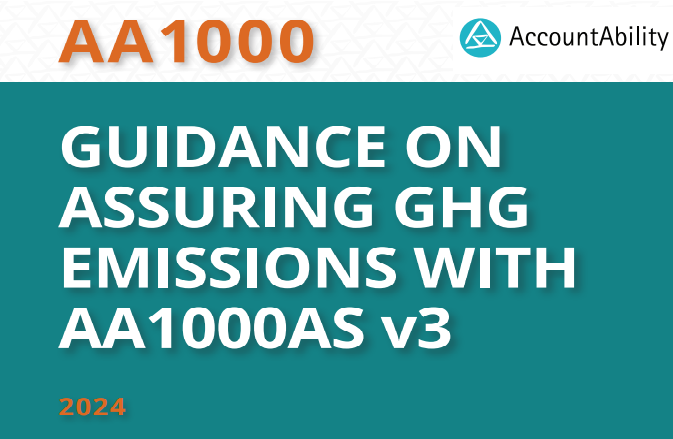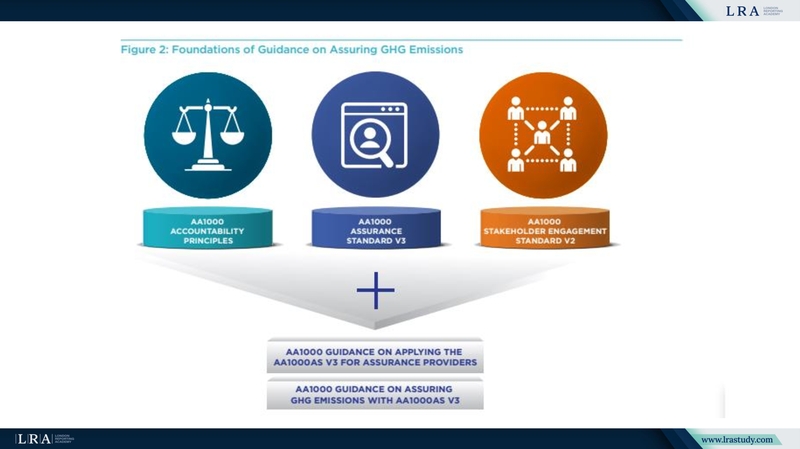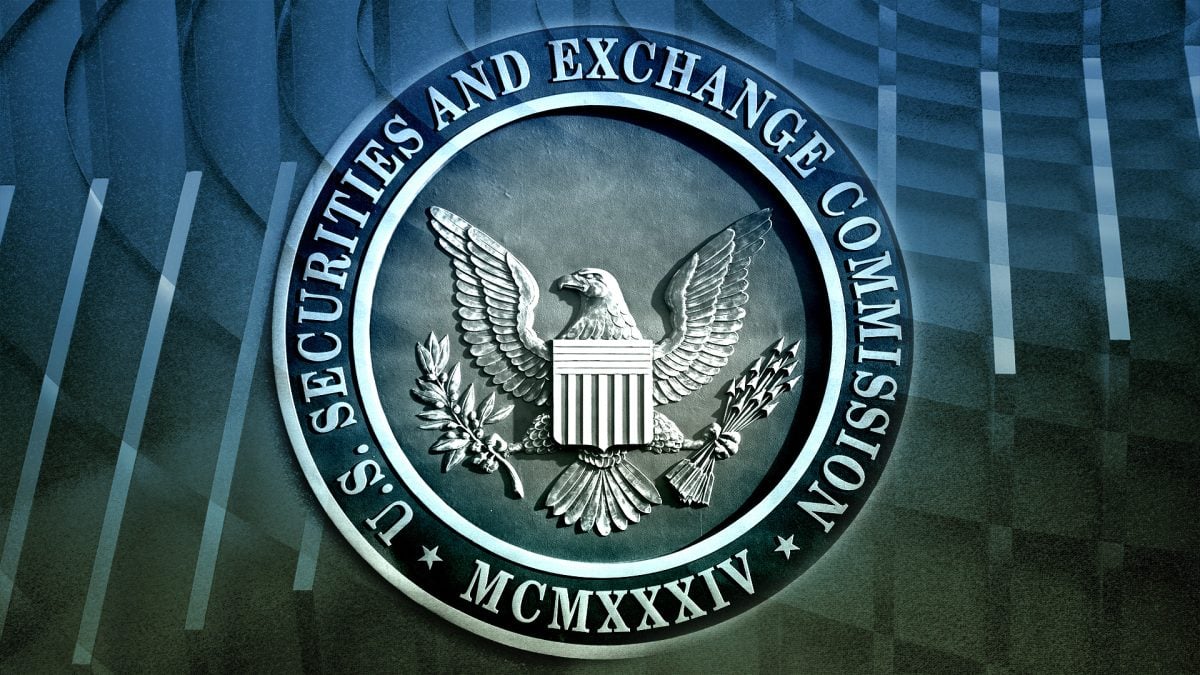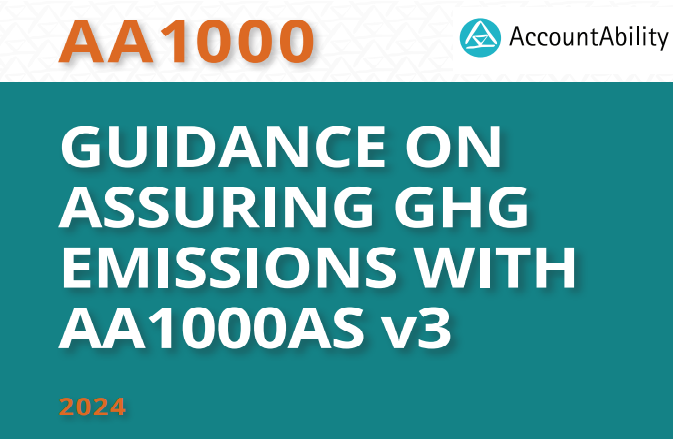New Guidance to Strengthen GHG Emissions Verification

In October 2024, AccountAbility presented comprehensive guidance to support organisations in verifying greenhouse gas (GHG) emissions. Developed to complement the AA1000 Assurance Standard v3, the guide equips assurance professionals with tools to evaluate GHG emissions data and processes. By enhancing transparency and fostering trust, it aims to meet the growing demand for robust and reliable sustainability disclosures.
The guide, titled "Guidance on Assuring GHG Emissions with AA1000AS v3", arrives at a pivotal moment as companies face increasing regulatory scrutiny and rising stakeholder expectations. With environmental impact under the spotlight, organisations are seeking credible methods to ensure the accuracy and relevance of their emissions reporting.
AccountAbility’s CEO, Mr. Sunil (Sunny) A. Misser, highlighted how GHG data is now being used as a critical indicator of organisational resilience and future performance. He noted that reliable emissions data plays a role similar to financial metrics, shaping how stakeholders evaluate a company’s health and predict its trajectory.
Download the Assurance Standard and its accompanying Guidance document for complete details:

Source: AccountAbility 2024, Guidance on Assuring GHG Emissions with AA1000AS v3
Key Features of the Guidance Document
The Chair of the AccountAbility Standards Board, Ms. Amy Springsteel, outlined the practical benefits of the new guidance, emphasising its utility for both reporting organisations and assurance providers. She explained how it offers clarity on the benchmarks for reliable and accurate GHG data while fostering a forward-looking approach to sustainability reporting.
The guidance document focuses on two critical aspects of GHG assurance:
Data Reliability and Quality
- Assessing whether GHG data meets global benchmarks for accuracy, comparability, and relevance;
- Ensuring organisations disclose emissions information that reflects their sustainability goals and performance.
Forward-Looking Reporting
- Evaluating the presence and effectiveness of sustainability targets, goals, and milestones;
- Enabling organisations to predict future sustainability performance through robust measurement mechanisms.
Why GHG Assurance Matters
Non-financial information, including GHG emissions data, is now held to standards as rigorous as financial disclosures. Independent third-party verification not only ensures the reliability of emissions data but also enhances confidence in the methodologies used by organisations.
According to Dr. Glenn Frommer, a member of the AccountAbility Standards Board, the AA1000AS v3 plays a vital role in elevating sustainability reporting practices. He emphasised that assurance providers can leverage the standard to verify both the accuracy of GHG data and its alignment with broader sustainability impacts.
Dr.Frommer also underscored the compatibility of the AA1000AS v3 with other international standards, enabling organisations to integrate its principles seamlessly into their assurance processes.
Benefits of Adopting the AA1000AS v3
Organisations that apply the AA1000 Assurance Standard v3 and the accompanying GHG Guidance stand to gain several strategic advantages:
- Enhanced Credibility and Compliance: Strengthened alignment with global sustainability regulations and improved trust among stakeholders.
- Investor Engagement: Adoption of a standardised framework that communicates sustainability performance effectively, enabling better investor decisions.
- Operational Excellence: Promotion of a culture of continuous improvement, driving innovation in ESG management and reporting.
Final Thoughts
The AA1000AS v3 and its GHG Guidance provide a robust framework for improving sustainability assurance practices. By ensuring that emissions data is accurate, transparent, and forward-looking, these tools enable organisations to meet stakeholder expectations and gain a competitive edge.
As environmental accountability becomes a cornerstone of corporate governance, organisations adopting these standards will be better positioned to demonstrate their commitment to sustainability and long-term resilience.



